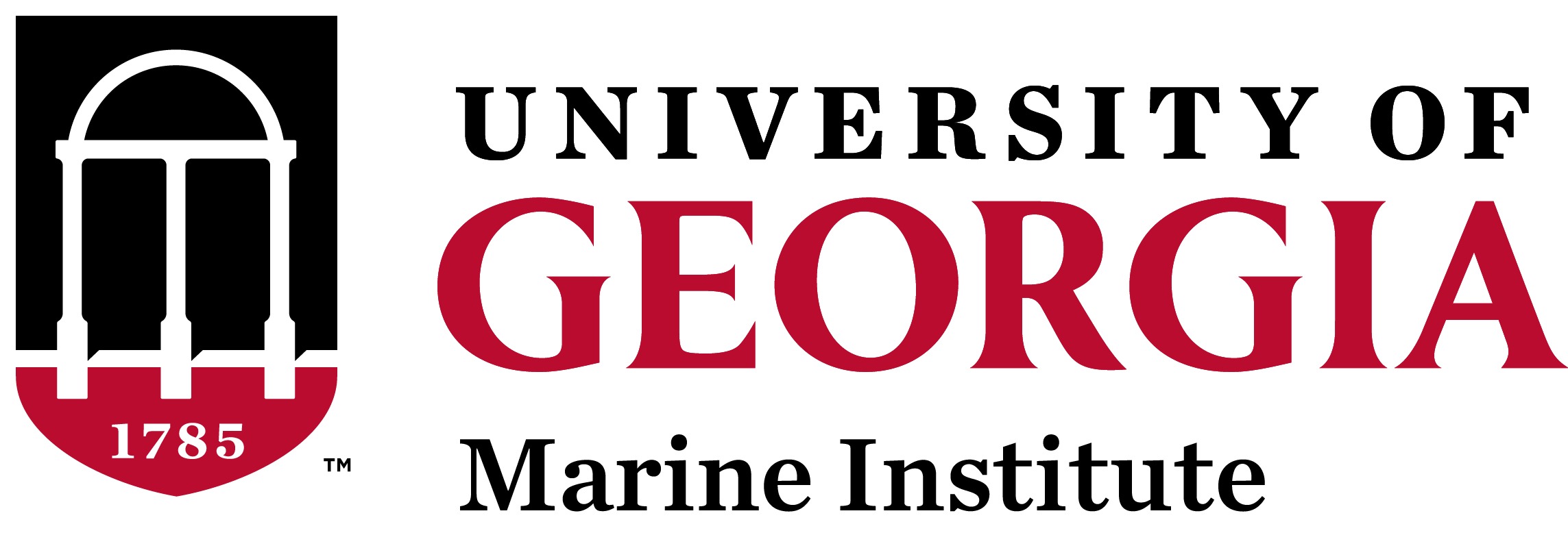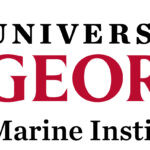
The mission of the UGA Marine Institute (UGAMI) is to provide exceptional opportunities for research and university-level education in coastal ecosystems. Located within the Sapelo Island National Estuarine Research Reserve (SINERR), UGAMI is a living laboratory that offers access to protected barrier island habitats, including salt marshes, beaches, maritime forests, tidal creeks and estuaries. It also serves as the home base for the Georgia Coastal Ecosystems Long-Term Ecological Research Project (GCE). Long-term ecological monitoring data, together with the results from hundreds of previous studies, make UGAMI a world-renowned field destination for scientists and classes.
In addition to a strong record of research, the Institute serves 50-60 groups of university students each year who hail from many institutions across Georgia and beyond. UGAMI-based courses and field trips immerse university students in field-based academic studies, which is often a life-changing experience. The Institute also hosts workshops, professional meetings, and outreach activities.
Scientists, students, and other visitors to UGAMI find a vibrant, supportive community of scholars from multiple institutions and fields of study.
-

- North America
- University of Georgia Marine Institute on Sapelo Island
- PO BOX 32
- Sapelo Island
- 31327
- United States
- Georgia
- 31
- 81
- ugamidir@uga.edu
- https://ugami.uga.edu/
- 1953
- 2014
- Yes
- University of Georgia
- University of Georgia
- Athens
- 30602
- United States
- Georgia
- Nicholas Macias
- nicholas.macias@uga.edu
- Assistant Director
- (912) 485-2221
- Dr. Merryl Alber
- ugamidir@uga.edu
- Claire Savage
- cnbridge@uga.edu
- nicholas.macias@uga.edu
- $500,001 - $1,000,000
- 501-1000
- LTER
- Yes
- 11-20
- 0
- 50+
- 26-50
- Yes
- Yes
- On Grid
- 61+
- Yes
- Yes
- Undergraduate
- Yes
- Yes
- Marine
- Intertidal - salt marsh, pelagic, benthic, abyssal
- 0-100 meters
- 0-100 meters
- C (temperate)
- Yes
- Rural
- Yes
- Yes
- Yes
- Yes
- Yes
- Yes
- Yes
- Yes
- 70
- 20
- 10
- Year Founded
- 1953
- Year Joined OBFS
- 2014
- Size of Field Station (hectares)
- 501-1000
- FSML Web Address
- https://ugami.uga.edu/
- Private nonprofit organization?
- No
- Universities affiliated / Parent Organization
- University of Georgia
- Federal, state, or local governmental partners?
-
LTER
- Member of the Virtual Field
- No

